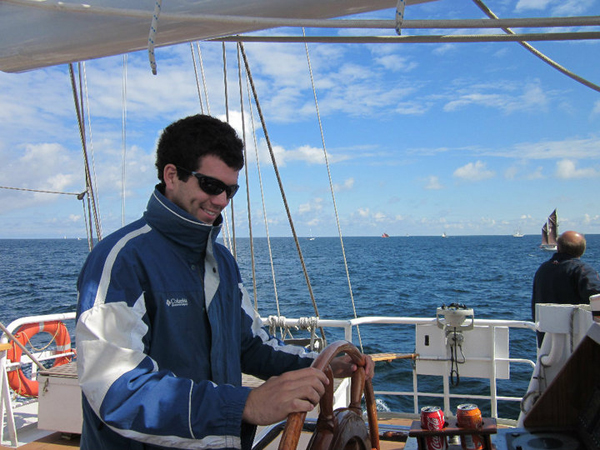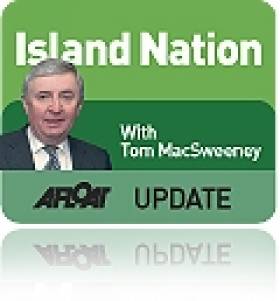Displaying items by tag: Belgium
IFI Promotes Angling in Ireland With Stand at Belgium’s Pêche Expo This November
Inland Fisheries Ireland (IFI) is organising Ireland’s first ever stand at the Pêche Expo angling show in Belgium on the weekend of 11-12 November.
Pêche Expo is aimed at a general angling audience and is dedicated to all types of fishing, with a main emphasis on freshwater fishing such as pike, trout and coarse angling.
The primarily French-language event will be held at the Palais des congrès et centre d’expositions in Libramont in southern Belgium, at the heart of a region laced with streams and rivers and with an abundance of ponds and human-made lakes.
IFI says its “Pêche en Irlande” stand will measure circa nine metres squared and exhibitors will have their own table and seating. IFI is now seeking expressions of interest from prospective trade partners, tour operators, marketing groups, accommodation providers, fishing guides, fishery owners and more.
Inland waterways in Ghent and other popular areas in the Flanders region of Belgium have been effectively closed to pleasure boating as a result of historic drought conditions across continental Europe.
Marine Industry News reports on the move by Flemish Waterways, which has declared that leisure vessels may only pass through locks alongside commercial traffic.
“In concrete terms, this means that pleasure craft are no longer possible on waterways with very little or no commercial shipping,” Flemish Waterways said in a statement.
The organisation adds that recent heavy rains and forecasted rainfall will not be enough to restore its watercourses to safety navigable levels any time soon.
Moreover, there are growing concerns about water supply throughout Belgium with use restrictions being mooted for next month as the drought continues.
Marine Industry News has more on the story HERE.
Could Waterford Lead a Tall Ships Revival?
I am aware that a number of groups are examining the possibility of launching a national sail training programme. I wonder if Waterford could be the place to lead it and be the base for national sail training. The marine sector suffers from the neglect and disregard of a disinterested Government so any revival will have to be outside of State support.
Waterford staged a hugely successful visit of the Tall Ships Race in 2005 and has been honoured with the hosting of the Race start next year. Bertie Ahern as Taoiseach snubbed the Race visit in 2005. It showed how little respect he had for the maritime sector. Half-a-million people visited the city, but Bertie couldn't be bothered to do so.
The city has been encouraging young people to get experience of crewing aboard Tall Ships. Twenty-year-old David Murray, a business information systems student at University College Cork, is becoming a sail training "veteran" through experience gained over the past two years.
He first 'shipped out' last year aboard the Tenacious operated by the Jubilee Sailing Trust of the UK, a registered charity which also operates the Lord Nelson. His first voyage, following which he sailed the north coast of Scotland on the Lord Nelson and this year became a Bosun's Mate, taking more responsibility aboard the Nelson on a voyage from Southampton to Glasgow. Then he joined the Dutch three-masted schooner, Eendracht, from Kristiansand in Norway to Hartlepool in the UK, where he disembarked and re-joined the Tenacious, again as Bosun's Mate, sailing to Bruges in Belgium and onto London. A few days later he was back aboard the Lord Nelson as Bosun's Mate from Falmouth to Milford Haven in Wales and then to Waterford, from where the Tall Ships Race will start next year,
"It's been a brilliant experience. I've met a great mix of people. Sail training is for everyone," he said. "It's been a very busy but great couple of summers with Tall Ships and I'm really looking forward to next year, especially with Waterford again hosting the fleet and crews from around the world coming to the city. I strongly recommend sail training and the fact that the races start from Waterford next summer makes it even easier for Irish young people to get involved."

David Murray is a Tall Ships veteran at the age of 20
David comes from Butlerstown in Waterford. His pleasure in the experience of tall ship sailing underlines what has been lost by the shameful behaviour of the Government in closing down the sail training programme.
It will be a national disgrace if there is not an Irish tall ship flying the Tricolour at next year's Tall Ships Race start in Waterford. The city has done magnificent work in putting Ireland to the forefront in the world of tall ships. Perhaps Waterford should be the base for the creation of a new national sail training system.
• This article is reprinted by permission of the EVENING ECHO of Cork where Tom MacSweeney writes maritime columns twice weekly. Evening Echo website: www.eecho.ie





























































